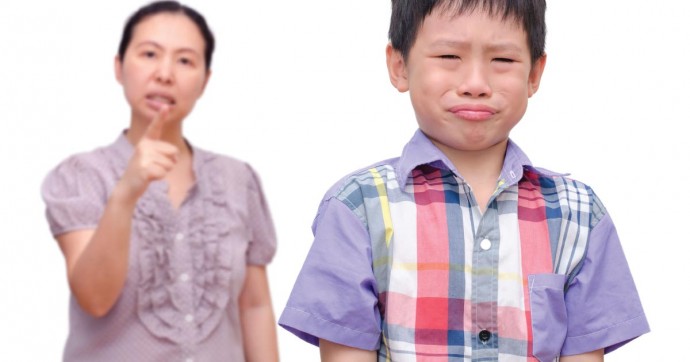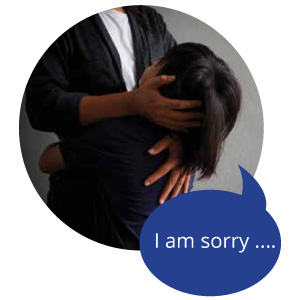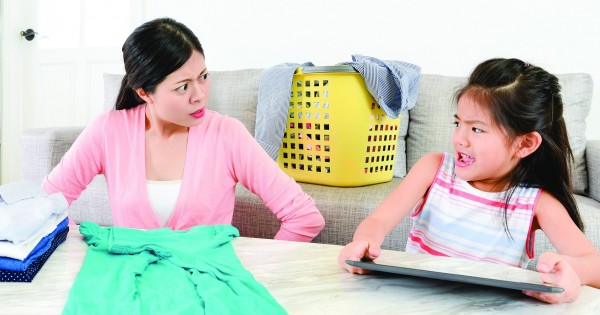Children grow up learning about right and wrong from the consequences of actions – their own and those of others. When they demonstrate appropriate behaviours, they are praised and accepted, while inappropriate behaviours typically result in reprimands and rejections. Regular exposure to these consequences lead children to learn that there are times they get into trouble and times they are celebrated.
Often, when we make a mistake as a child, we get reprimanded, e.g. being scolded, given a look of disapproval, or being labelled in ways that bring shame to us. This method of discipline focuses on making us averse to mistakes, and in doing so, associates mistakes with guilt and shame.
What are guilt and shame?
Guilt is a feeling of remorse for wrongdoing that is associated with your responsibility. When a child breaks his mother’s favourite mug, he feels bad that his action would upset his mother. Shame is a feeling of embarrassment from making a mistake that affects your perceived reputation. The child who broke his mother’s favourite mug would feel ashamed of himself for being clumsy. So, guilt is due to what you have done, and shame refers to how you feel about yourself.
Guilt and shame are a natural part of life because society expects us to take responsibility for our actions. When we make a mistake, we are blamed for it and are also made to feel bad (guilt and shame) about it. This is society’s way of improving individual progress by reducing and preventing mistakes, because a part of human motivation is to avoid anything that is aversive or unpleasant. Guilt and shame are two aversive consequences that we try to avoid.
Regulating guilt and shame
Being part of the larger society, it is natural for parents or teachers to reprimand children when they make mistakes or misbehave. Children may associate these reprimands with who they are, and feel ashamed of themselves, rather than what they did. You have to be clear that your reprimands are focusing on their behaviour, not on themselves. For example, instead of saying “You are very stupid for …,” it is more appropriate to say, “What you did was very silly. Don’t do it again.” Children have to learn to be accountable for their own behaviours, but do not label themselves as a mistake. They need to cope with making mistakes by acknowledging it and moving on. Therefore, parents and teachers need to be careful not to dwell on mistakes, creating more guilt and shame in children.
As imperfect human beings, we make mistakes daily. A part of growing up is learning how to manage the frustrations from mistakes, as well as the guilt and shame that we feel as we interact with others, especially parents. Guilt and shame need to be properly managed. If kept inside, they become a heavy burden in life and can lead to emotional disorders such as depression and anxiety. Deep-seated guilt can lead to extreme shame and self-hatred, which can manifest as depression or misplaced anger towards others. These extreme forms of guilt typically surface in adolescence or young adulthood, as they take time to develop, but they can also occur in younger children.
When reprimanding children, it is important to keep their emotions in check and ensure they have a good balance of feedback and nurturance. Show them that they are valued members of your family and community. A part of emotional well-being is to have the sense of belonging to a family and community – a sense of being accepted for being who you are and how you can contribute.
Healthy and unhealthy guilt and shame
Some children are just more sensitive and may be more susceptible to guilt and shame; they can be exposed to the gentlest treatment and upbringing, yet still feel guilt and shame. It depends on how they perceive their personal control, responsibility and attributes. Parents and teachers need to guide children on how to let go of their wrongdoings by acknowledging them and aspiring to improve. Healthy use of guilt and shame is socially adaptive and functional. However, they can be an emotional burden when kept too long and become unhealthy, when they result in emotional hurt that affects daily functioning.
The power of forgiveness
One very significant way to handle guilt and shame is the concept of forgiveness. Teach children about forgiveness as soon as they are old enough to understand it. As adults, practice it openly with each other to be an example to your children. Forgiveness is a powerful act that helps individuals to let go of their guilt, and eventually reduce their shame. While you teach children to be responsible for their behaviours, also teach them to ask for forgiveness and help them to learn from their mistake and move on with life.
It is crucial that you also sincerely forgive them and move on yourself, or you may unknowingly instil guilt by reminding them of their mistakes and your disappointment. Sincerity and respect are very important components of forgiveness. Instil these in children to manage shame and guilt successfully. Otherwise, there is danger of children dwelling too much in them, or losing the sense of guilt and shame altogether.
Focus on positive discipline
What can we do as adults to promote healthy guilt and shame? The main method is to focus on positive disciplining, where behaviour is made the target of disciplining. For example, if you want to discipline your child to complete his homework, scolding and labelling him as “lazy” would be counterproductive, as it can discourage him emotionally, thus affecting his productivity.
Instead, using strategies that increase his engagement in homework would be more beneficial. Shaming children for making mistakes is negative disciplining, as it is likely to end in punishment. A more productive way is to encourage desired behaviours, rather than focusing on undesired ones. One main benefit of focusing on the positives is that you are more likely to feel encouraged than upset. This will also reduce the likelihood of guilt and shame on both sides. Of course, there will be times when punishment is warranted, but always help your children to deal with their guilt and shame after punishing them. It is much easier to destroy self-esteem than to build it. So, mind your focus when you discipline.
An educational collaboration with Malaysian Society of Clinical Psychology.








Comments